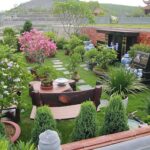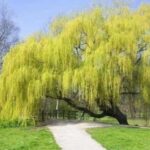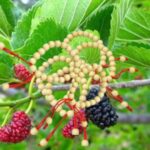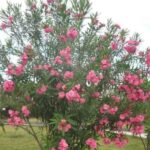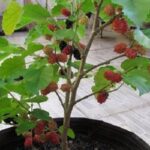4 Trees Not to Plant Indoors
In ancient times, a home was not just a place for daily living but also a repository of cultural and family values.
Our ancestors had strict requirements for the environment surrounding their homes. Here are four trees that they advised against planting indoors.
1. Cypress
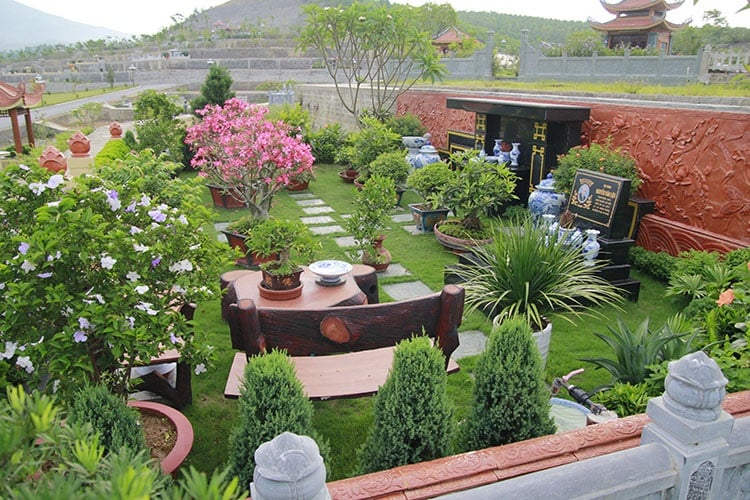
The ancients believed that cypress was a “yin” tree and should not be planted around or inside the house. Doing so could bring bad luck and illness to the household.
This is because cypress trees are often found in cemeteries, and planting them indoors is thought to bring in “yin” energy and bad luck. Cypress trees are associated with death and are considered unsuitable for indoor planting.
In reality, cypress trees have a long lifespan, sometimes reaching hundreds of years. The scent emitted by these trees is strong, and some people may experience allergies after inhaling it.
Cypress trees are tall with dense branches and leaves that block light, creating a heavy and gloomy atmosphere that can affect the indoor environment.
Additionally, the dense foliage blocks sunlight from entering the house, which, according to feng shui, can impact the family’s health and wealth.
Cypress trees also have a well-developed root system that can damage foundations if not properly planted. Therefore, our ancestors advised against planting cypress trees in the house yard.
2. Poplar
An ancient saying goes: “Don’t plant mulberry in the front yard, willow in the back, and ‘clapping ghost’ in the middle.” The “clapping ghost” refers to the poplar tree. Why is that?
In reality, our ancestors observed that when the wind blew through the poplar trees, the rustling of the leaves sounded like clapping hands.
The sound of the leaves clapping together in the wind can be unnerving, especially at night, and may cause sleeplessness and anxiety.
Moreover, poplar trees are not suitable for planting in the yard. Firstly, this fast-growing tree has brittle branches. During strong winds or storms, the branches can break and fall on the house or people below, posing a safety hazard.
In spring, poplar trees produce fluffy seeds that resemble snow. While this may look beautiful, it can trigger respiratory problems such as asthma and coughing.
Thus, the ancients advised against planting poplar trees in the yard.
3. Mulberry
Mulberry trees have been economically important since ancient times, as their leaves are the primary food source for silkworms, and the fruit is favored by people.
However, the word for “mulberry” in Vietnamese is homophonous with the word for “funeral,” leading our ancestors to believe that planting mulberry trees indoors brings bad luck.
Despite the tree’s agricultural significance, people remained cautious about planting mulberry trees near their homes to avoid misfortune.
Mulberry trees have an extensive root system that can damage foundations. Additionally, the sweet fruit attracts birds, insects, mice, and ants, creating an unhygienic environment indoors. The fallen fruit can also make the yard messy and challenging to clean.
Therefore, the ancients advised against planting mulberry trees in the yard.
4. Willow
Willow trees are also on the list of trees not to plant around the house. While willows have high aesthetic value in garden art, our ancestors heeded these prohibitions when planting willow trees near their homes.
Since ancient times, willow trees have been associated with emotions of separation, sadness, and despondency. Therefore, the ancients believed that planting willows in the yard was inauspicious.
Willows thrive in moist environments and exude a chilly aura, making the indoor environment damp and cold.
Planting willows also disrupts the yin and yang balance, attracting negative energy and making the entrance of your home gloomy and lifeless.
Moreover, willows have a soft, drooping appearance that can affect the mental state of the household. If family members are constantly feeling sad and lacking vitality, it will be difficult to prosper and build a thriving family.
Thus, our ancestors advised against planting willows in front of the house to avoid bringing bad luck to the family.
When choosing trees to plant indoors, our ancestors recommended selecting trees with strong yang energy and positive meanings, such as magnolia, jasmine, peach, pomegranate, hawthorn, sweet osmanthus, and snowball viburnum.
3 Trees Not to Plant Near Graves
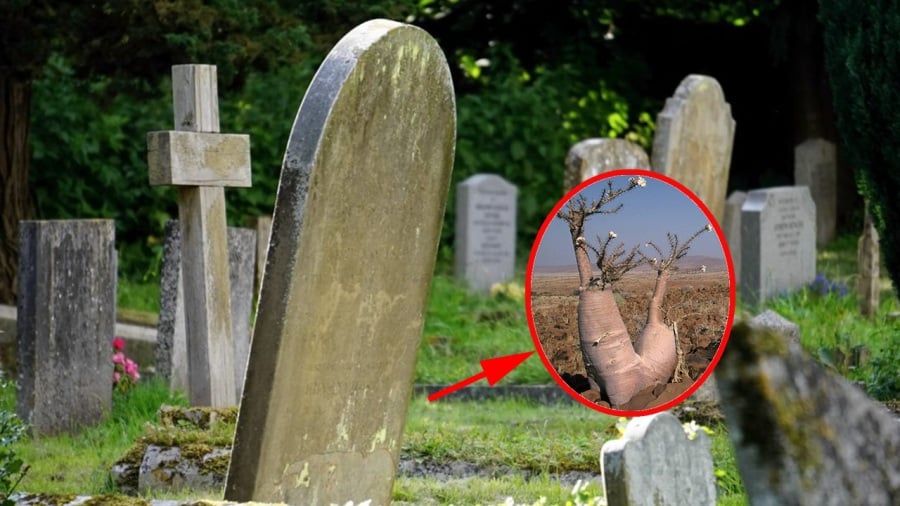
Trees Not to Plant Near Graves
-
Oleander (Nerium oleander)
- Feng Shui Perspective: According to feng shui principles, oleander should not be planted near graves due to its toxic nature, which can be harmful to health if touched or ingested. Traditionally, oleander is associated with death and sorrow, making it unsuitable for creating a peaceful and respectful environment for the deceased. Planting this tree near graves may bring bad luck and disrupt the peaceful atmosphere.
-
Cactus (Cactaceae)
- Feng Shui Perspective: Cactus, with its sharp spines, is considered unlucky to plant near graves. In feng shui, plants with piercing shapes or characteristics are believed to create a barren and negative atmosphere. To honor the deceased, it is advisable to choose plants symbolizing peace and tranquility rather than those with potentially disturbing appearances.
-
Cattail (Typha)
- Feng Shui Perspective: Cattails are typically associated with wetlands and can spread rapidly. In feng shui, cattails are not recommended for planting near graves as they can create a messy and untidy impression. They may also detract from the beauty and solemnity of the memorial space.
(This article is for reference only)
The Ancient Wisdom Uncovered: “The 5 Trees of Doom: Plant These and Watch Your Fortune Vanish”
The ancient belief that these five trees could bring bad luck and affect the prosperity of a household is an intriguing one. However, it is important to note that these beliefs are just that – ancient superstitions. In reality, these trees, like all flora, have their own unique beauty and ecological significance.
The Ancient Wisdom: Unveiling the Trees of Misfortune.
The five types of trees that are considered inauspicious to plant in residential areas due to traditional beliefs and feng shui principles are the mulberry, pear, pine, cypress, and “phat loc” (a type of tree believed to bring wealth and prosperity in Vietnamese culture). These trees are believed to bring bad luck or negative energy to the household, according to ancient superstitions. However, it is important to note that these beliefs may vary across different cultures and regions.
























